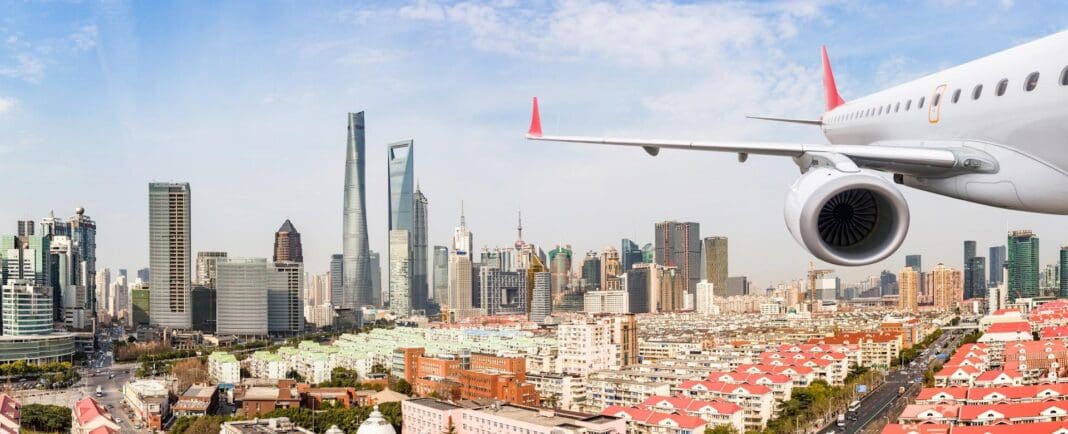Once upon a time – in 2019 – tourists from China were among the best-traveled in the world. They collectively spent more than US$250 billion abroad – nearly twice as much as their nearest competitors, the Americans – and logged more than 150 million departures on international flights that year.
The COVID-19 pandemic shook the Chinese travel industry, as it did the world’s. But despite the easing of pandemic restrictions – and a global tourism rebound – Chinese tourists have been slow to return to the global skies. The reason, interestingly enough, could be found in the very land and houses Chinese planes fly over.
As a professor of marketing who specializes in consumer psychology, I’m interested in how China’s struggling real estate sector is dragging down consumer spending – and having an effect on tourist destinations around the world.
To understand the issue, first you need to understand China’s current real estate crisis. Just how bad is it? China’s largest developer, Country Garden, lost $7.1 billion in the first six months of 2023; investors concerned about potential debt default have sent its stock plummeting.
Another major developer, the troubled China Evergrande Group, posted a $4.5 billion loss over the same period and sought bankruptcy protection in the U.S. last month. It gained international attention in 2021 after it defaulted on $300 billion of debt, sparking the current crisis.

One major – if indirect – reason China’s real estate industry is so shaky is that local governments are heavily dependent on tax revenue from land sales, as well as property taxes and real estate development fees. At the same time, about 70% of the general population’s assets are invested in real estate.
Those facts enticed developers and local governments alike to borrow excessively to fund new development. When the central government started to implement more stringent regulations to curb speculation and control prices, the market predictably cooled – and has kept cooling. In July 2023, new home sales from China’s top 100 developers were down 33% from the previous year. Prices are slumping, too.
This has had a cascade of effects on the Chinese economy. Most immediately, as demand for construction materials and labor has fallen, hiring has cooled and consumers are tightening their belts. Local governments are also struggling to stay afloat with less revenue, with some provinces being forced to slash government salaries and benefits.
The situation is especially challenging for homeowners, who are burdened with shrinking wealth as housing prices fall. This has had a ripple effect on spending, as cautious consumers increasingly prioritize their savings – worsening the economic challenge for businesses across the country.
Unsurprisingly – at least to anyone who’s paid attention to the world economy – what happens in China doesn’t stay in China. And the global tourism industry has been hit particularly hard as newly budget-conscious Chinese homeowners pare back their spending.
As of April 2023, Chinese tourism to Japan was down some 85% since 2019, even though overall visits to Japan had rebounded to 70% of pre-pandemic levels. Chinese tourism to popular European destinations such as France, Switzerland, Greece and Spain has also fallen sharply. All in all, China’s outbound travel spending is forecast to be down nearly 70% this year from its pre-pandemic peak.
To be fair, tourism within China is bouncing back – to a degree – as frugal travelers increasingly opt to vacation closer to home. The China Tourism Academy predicts that domestic tourism will hit 90% of pre-pandemic levels in 2023. But that alone won’t offset the impact of lower consumer confidence. Part of the reason is that the amount of money travelers are willing to spend is down.
And faced with demand challenges as well as the effects of COVID-19 and geopolitical strife, Chinese travel agencies have been shuttering en masse in recent years. From January to April 2022, some 8,500 tourism agents and firms declared bankruptcy. Even assuming some reopen, that churn and disruption bode ill for the sector.
Global tourism has faced a challenging few years, with the pandemic and increased fuel costs putting off would-be travelers. With Chinese consumers feeling down in the dumps over the economy and opting for modest vacations, a recovery will be that much harder.
This article is republished from The Conversation, an independent nonprofit news site dedicated to sharing ideas from academic experts. The Conversation has a variety of fascinating free newsletters.
Read more: G20: Xi Jinping’s snub of summit the latest in escalation of ambition between two assertive powers Why the United States will have to accept China’s growing influence and strength
Zhiyong Yang does not work for, consult, own shares in or receive funding from any company or organization that would benefit from this article, and has disclosed no relevant affiliations beyond their academic appointment.














